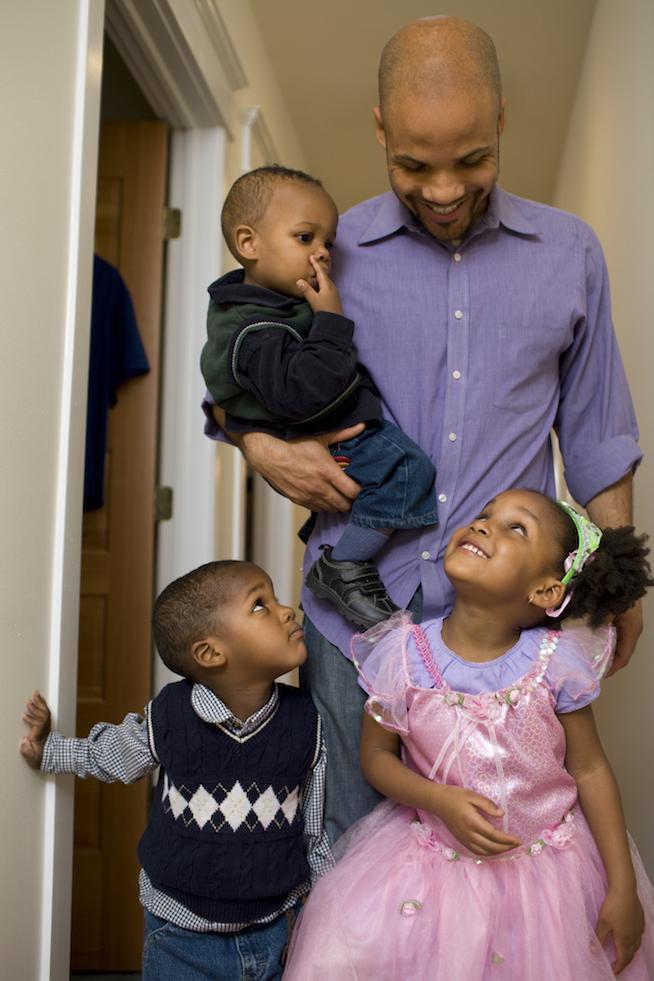
We're all in this together.
The flipside of misogyny is toxic masculinity. This is the masculinity that tells men to "man up" and prove themselves with violence or rigid gender roles.
I recently participated in a panel on the war on women put together by New York State Senator Liz Krueger. One of the questions addressed to me was how the war on women hurts men.
It’s perhaps obvious how women are hurt when those in power do not view their lives and interests as equal and have no empathy for them: Their reproductive rights, their economic rights, and their human rights are dismissed and attacked. But how are men impacted by culture and policies based in woman hatred? My answer is simple: Until women are free, men will not be free.
The flipside of misogyny is toxic masculinity. This is the masculinity that tells men to "man up" and prove themselves with violence or rigid gender roles. Men are directly harmed by values that limit their ability to be their whole selves, thus denying them the right to be fully human. Because of this oppressive gender rigidity, many men are dehumanized, having psychically killed off the emotional parts of themselves. This leaves some men only with violence and anger, which is often directed at women. We see the consequences of this in deadly mass shootings, but also in other forms of violence like street and workplace harassment, and the rape and sexual assault epidemic both on and off the college campus. So, first and foremost, woman hatred and rigid ideas about gender harm men emotionally and psychically.
Policies and culture based on woman hatred also hurt men in the workplace, in the wallet, and at home. As Scott Behson, author of The Working Dad’s Survival Guide, notes, while the current generation of fathers works as hard as prior generations and aspires to career success, the modern dad has tripled the time he spends caring for his children and does twice the housework, compared to fathers of a generation ago, and many dads now struggle with work-life balance. In other words, dads today also want to “have it all.” But, they can’t because workplace and government policies have not caught up with this reality. And let’s not forget the many single dads, gay dads, and the increasing number of stay-at-home dads who do not fit into traditional ideas about masculinity. These men are completely ignored by policies that assume every family consists of a mother and a father, with a presumption that the mother will stay home and provide free childcare.
Unfortunately, societal expectations are that men prioritize bread-winning after having children, while women are expected to prioritize their families. These expectations do not account for what might work for each individual family or the fact that in nearly 30% of heterosexual American marriages where both spouses work, the woman out-earns her husband. In fact, many women are still forced to opt out of their careers to care for their children because of economic realities. This not only hurts those women economically, but their husbands and family as well. Think of it this way: when my wife is limited, I am limited. And when only the birth parent can take paid leave, we are forced to follow traditional gender roles. And yet, we are stuck with a system that doesn’t come close to supporting dads embracing new roles. As Hillary Clinton has stressed, the issues of paid family leave, equal pay, access to childcare, and paid sick days are not women’s issues but family issues. Both men and women want to be able to bond with their newborns, to take their children to the doctor, to attend children’s special events, and we all want affordable childcare and equal pay in the workplace so both spouses can be free to make real choices about their careers without the burden of childcare looming over them. As long as we don't think of men as caretakers, and perpetuate the notion that this is a female role, men in these roles will be stigmatized.
Further, as was discussed at length in a recent NY Times op-ed entitled “Men’s Lib,” men are being hurt because although the “old economy and the old model of masculinity are obsolete,” rigid ideas about gender prevent them from considering careers in what are traditionally considered female fields, such as nursing and education. Not surprisingly, in the same way girls may not apply to study science if they see boy-oriented posters, boys react the same way to images and environments with a feminine feel. Instead of adapting and broadening their options, the op-ed notes that “some men, especially those with the bleakest economic prospects, are retreating into what some scholars have labeled ‘hyper-masculinity’” in the hopes of boosting their low status. These same rigid ideas sometimes prevent men from marrying women who are more educated and more successful than them, and vice versa.
Sadly, public policies are still framed “in a way that reinforces, rather than replaces, outdated gender stereotypes” (think of the campaign for maternity leave, rather than parental leave). In short, “[i]t has been clear for a long time that cramped gender roles are bad for women. It is becoming obvious that now they are hurting men, too.”







